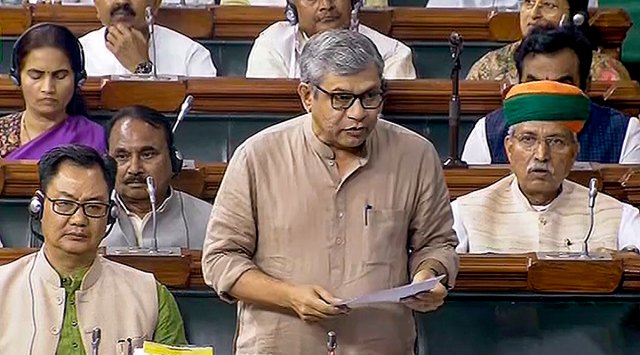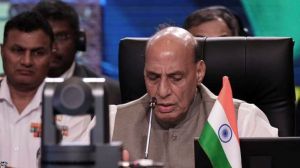This is India’s second attempt at framing a privacy legislation, and comes after at least three previous iterations of a data protection law have been considered, and shelved, by the government.

Under rules that allow them to protest the introduction of proposed laws, Opposition members opposed the introduction of the Bill, demanding that it be officially referred to a Parliamentary panel for further deliberation. Calls for referring the Bill to a Joint Committee of Parliament were also made. Opposition MPs also spoke about their concerns around excessive government exemptions present in the Bill, and expressed concerns around the potential dilution of the Right to Information Act, 2005.
Story continues below this ad
However, IT Minister Ashwini Vaishnaw said that none of the issues raised by Opposition members were related to the government’s legislative competence and that the Centre was ready to have a detailed discussion on the Bill, including all the allegations levelled by Opposition MPs.
The Bill is a crucial pillar of the overarching framework of technology regulations the Centre is building, which also includes the Digital India Bill — the proposed successor to the Information Technology Act, 2000 — the draft Indian Telecommunication Bill, 2022, and a policy for non-personal data governance.
Last August, the government withdrew from Parliament an earlier version of the data protection Bill that had been almost four years in the making, after it had gone through multiple iterations and a review by a Joint Committee of Parliament, and faced pushback from a range of stakeholders including tech companies and privacy activists.
The proposed law will apply to processing of digital personal data within India; and to data processing outside the country if it is done for offering goods or services, or for profiling individuals in India.
Story continues below this ad
It proposes to set up a data protection board that will adjudicate on matters related to violations of the provisions including data breaches. It also offers wide ranging exemptions to the Central government and its agencies, a proposal that has drawn ire of Opposition MPs and privacy activists.
The Bill requires entities that collect personal data — called data fiduciaries — to maintain the accuracy of data, keep data secure, and delete data once their purpose has been met.
AIMIM MP Asaduddin Owaisi called for division, Congress MP Gaurav Gogoi asked for the Bill to be referred to a Joint Parliamentary Committee. Congress MP Manish Tewari said that there was a distinction in the way the Bill applied to different entities. “It applies with full force to non government entities, and the entire government is going to be exempt from it,” Tewari said. TMC’s Sougata Roy opposed the Bill’s introduction saying that the final version was completely different from the one first proposed last year.
NCP MP Supriya Sule opposed the Bill saying that it was a “complete insult and hurts the federal structure of India”. Congress MP Adhir Ranjan Chowdhury said that the Bill was a “sinister move” to “trample” the Right to Information Act, 2005. RSP’s NK Premachandran said that the Standing Committee on IT had not formally seen a copy of the final version of the Bill. Congress MP Shashi Tharoor that he was “deeply disappointed” that the IT Committee had not studied the Bill, given the vast number of objections to it.
Story continues below this ad
The concerns around diluting the RTI Act emanate from the fact that the data protection Bill has a provision to amend the act that would prohibit sharing of details linked to personal information of government officials. Currently, the exemption only applies when such information does not serve larger public interest. However, the Bill proposes to remove the public interest caveat.
Opposition MPs including from the Congress, DMK, TMC, Left parties, and NCP staged a walkout after the Speaker allowed the data protection Bill to be introduced.










